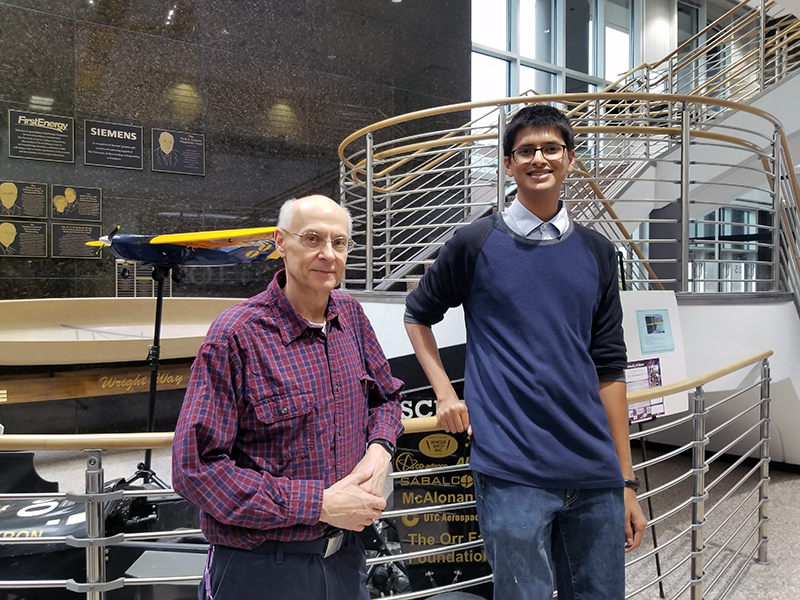The University of Akron is pleased to announce that it is the recipient of a National Lubricating Grease Institute (NLGI) Research Grant for a winning research proposal titled “A Fundamental Examination of Grease Thickener Self-Assembly.” The grant was written and submitted by Dr. Paul Shiller, civil engineering research assistant professor, and Emily Njus, senior grants coordinator. According to the NGLI, the proposal had the strongest potential to advance the world’s understanding of lubricating greases.
“Lubricating greases, like those used in the automobile industry, often bleed, or release oil, when they are used,” says Shiller. “This potentially impacts how the grease performs. The grant will allow us to research the impact that thickening the grease has on its performance. What we learn could be a game-changer for manufacturing processes around the world.”
UA received $50,000 to complete this work. Assisting in the research is student Nikhil Prasad, a senior biomedical engineering major.

Research team Dr. Paul Shiller and Nikhil Prasad.
To understand how greases behave, the research team made their own grease in-house. Using a Kitchen-Aid mixer, they developed their material using a combination of thickener and lubricating oil. The thickener they are studying is a lithium soap (think about a bar of Ivory soap dissolved in oil). This part of the process is critical to understanding how grease thickens when different components are added.
From there, the team will develop an atomistic model, a technique that shows the atomic makeup of a material using a computer. Atomistic modeling will reveal:
- The most stable soap (or thickener) structure;
- The interaction energy between soap molecules to determine how strong this interaction is when compared to other forces in the system;
- How hot the grease gets before it breaks down, and whether or not it changes shape, area and volume in response to a change in temperature; and
- How the grease structures change and evolve under the effects of time, temperature and forces through molecular dynamics simulations.
Simulations can also provide valuable insight and understanding into designing new lubricants and to understand their interaction with metal/metal oxide surfaces.
If the research team discovers thickener structures that are more capable of holding up to outside pressures, this would be viewed as a monumental discovery for the grease and lubricant industry, with global implications, notes Shiller. UA, in partnership with NGLI, would then need to determine a recommendation to scale up the manufacturing of these new structures.
The research is expected to be completed in August 2019. At that time the results will be shared with the NLGI membership.
Media contact: Alex Knisely, 330-972-6477 or aknisely@uakron.edu.
